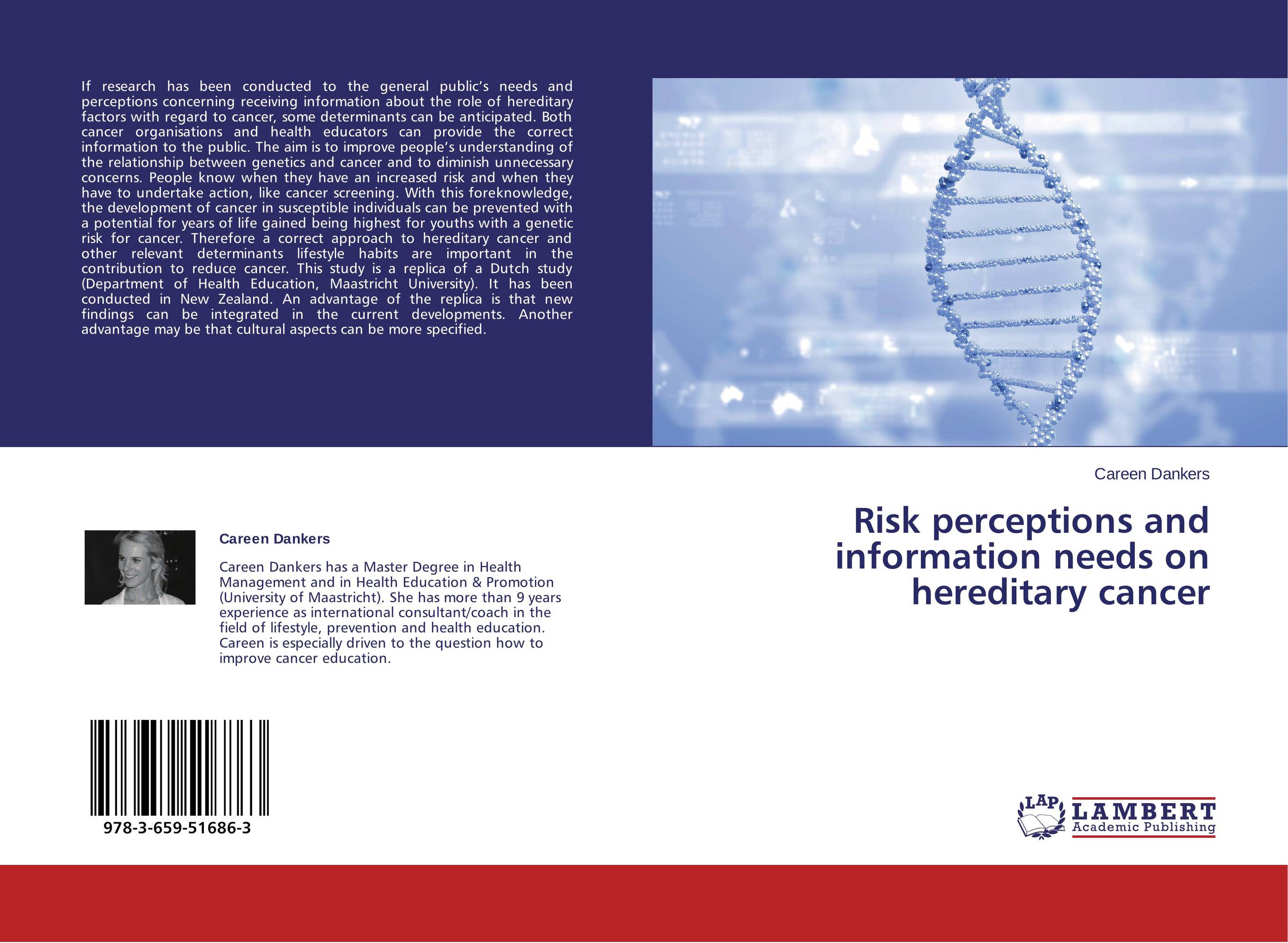| Поиск по каталогу |
|
(строгое соответствие)
|
- Профессиональная
- Научно-популярная
- Художественная
- Публицистика
- Детская
- Искусство
- Хобби, семья, дом
- Спорт
- Путеводители
- Блокноты, тетради, открытки
Risk perceptions and information needs on hereditary cancer.

В наличии
| Местонахождение: Алматы | Состояние экземпляра: новый |

Бумажная
версия
версия
Автор: Careen Dankers
ISBN: 9783659516863
Год издания: 2014
Формат книги: 60×90/16 (145×215 мм)
Количество страниц: 64
Издательство: LAP LAMBERT Academic Publishing
Цена: 23350 тг
Положить в корзину
| Способы доставки в город Алматы * комплектация (срок до отгрузки) не более 2 рабочих дней |
| Самовывоз из города Алматы (пункты самовывоза партнёра CDEK) |
| Курьерская доставка CDEK из города Москва |
| Доставка Почтой России из города Москва |
Аннотация: If research has been conducted to the general public’s needs and perceptions concerning receiving information about the role of hereditary factors with regard to cancer, some determinants can be anticipated. Both cancer organisations and health educators can provide the correct information to the public. The aim is to improve people’s understanding of the relationship between genetics and cancer and to diminish unnecessary concerns. People know when they have an increased risk and when they have to undertake action, like cancer screening. With this foreknowledge, the development of cancer in susceptible individuals can be prevented with a potential for years of life gained being highest for youths with a genetic risk for cancer. Therefore a correct approach to hereditary cancer and other relevant determinants lifestyle habits are important in the contribution to reduce cancer. This study is a replica of a Dutch study (Department of Health Education, Maastricht University). It has been conducted in New Zealand. An advantage of the replica is that new findings can be integrated in the current developments. Another advantage may be that cultural aspects can be more specified.
Ключевые слова: Health education, prevention, information needs, risk perceptions, Cancer Education, hereditary cancer



